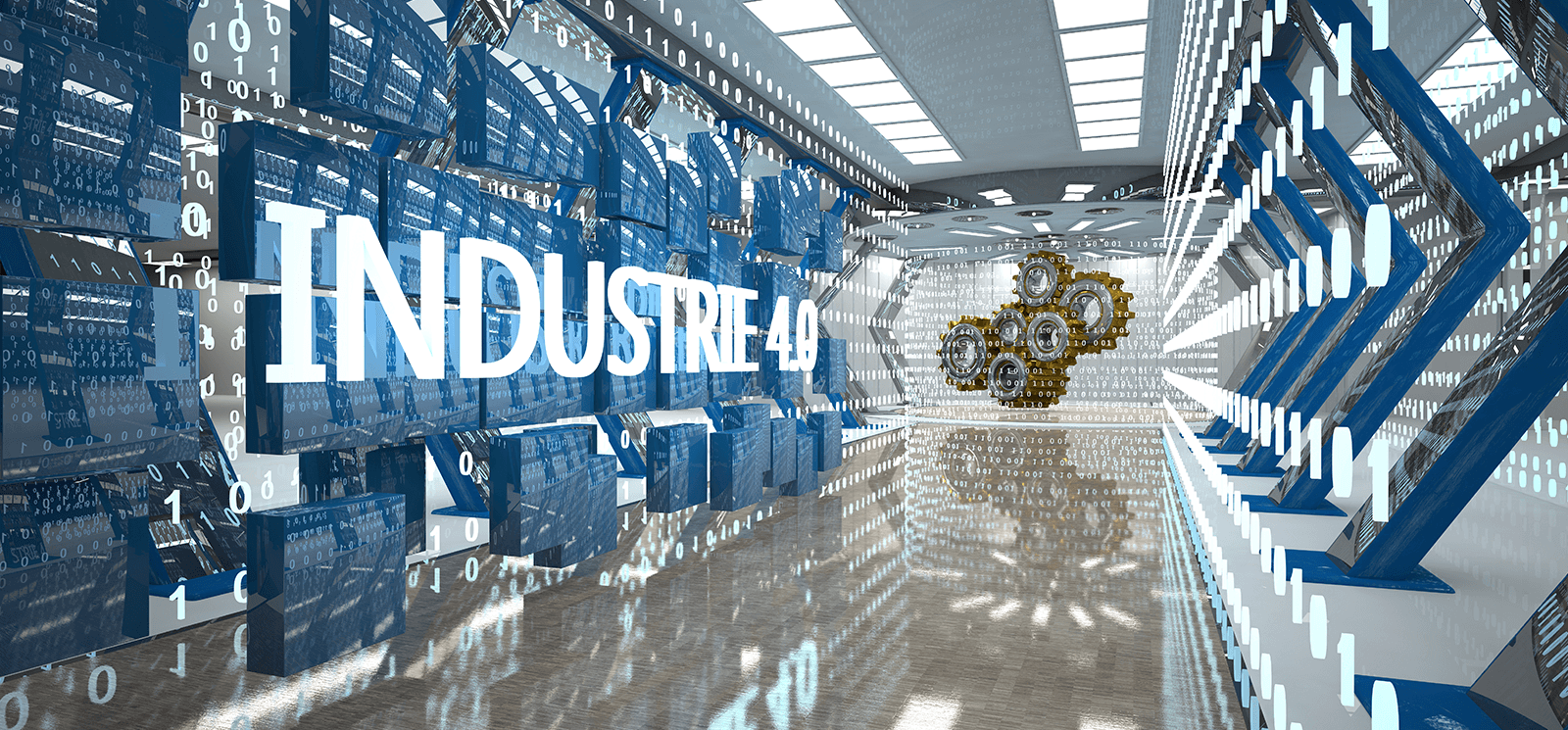What Is Industry 4.0 and What Does It Mean for Manufacturing?

This is the first in a multi-part blog series that focuses on Industry 4.0 in the manufacturing industry.
In case you haven’t heard, Industry 4.0 is here. It’s a significant transformation in the way products are produced, as a result of the digitization of manufacturing.
In fact, this transformation is so compelling that it is being called Industry 4.0 to represent the fourth revolution that has occurred in manufacturing. From the first industrial revolution—mechanization through water and steam power—and mass production and assembly lines using electricity in the second, to early digitizing through semiconductors, mainframe computing, personal computing and the Internet in the third, Industry 4.0 is taking what was started in the previous revolution and enhancing it with smart and autonomous systems fueled by data and machine learning.
What Industry 4.0 Really Means
McKinsey defines Industry 4.0 as the “digitization of the manufacturing sector, with embedded sensors in virtually all product components and manufacturing equipment, ubiquitous cyber physical systems and analysis of all relevant data.” It is driven by four clusters of disruptive technologies:
- Data, computational power and connectivity – i.e., low-power, wide-area networks, for example
- Analytics and intelligence
- Human-machine interaction – i.e., touch interfaces and augmented reality
- Digital-to-physical conversion – i.e., advanced robotics and 3-D printing
With these clusters currently at a tipping point, the time is now for manufacturing companies to figure out a response to them.
As Industry 4.0 influences mission-critical applications in business processes, the digital transformation is extensive, but it will come at a slower pace than the digital disruption of the Internet. Because of their long investment cycles, companies are often conservative when deciding on how to address fundamental disruption.
However, manufacturing companies that take the risk and are early adopters of new technology will be rewarded for their progressive decision-making. Digitization helps to ensure product quality and safety, as well as faster service delivery, which goes a long way with customers.
But how do you get there?
What It Takes to Be 4.0
For a manufacturing company to be considered Industry 4.0, it must include:
Interoperability – Having machines, devices, sensors and people that connect and communicate with one another.
Information transparency – Having systems that create a virtual copy of physical things through sensor data in order to put information in context.
Technical assistance – Having systems with the ability to help people in decision-making and problem-solving, and to assist people with tasks that are too difficult or unsafe for humans to do.
Decentralized decision-making – Having cyber-physical systems (i.e., smart grid, autonomous automobile systems, medical monitoring, process control systems, robotics systems, etc.) with the ability to directly make simple decisions and become as autonomous as possible.
While many manufacturers may continue to be in denial about Industry 4.0 and its impact on their businesses, or are having difficulty in finding the talent or knowledge to know the best ways to adopt it, many others are already implementing changes now and preparing for a future where smart machines improve their businesses.
Indeed, Industry 4.0 is still evolving, and we may not know the complete picture for a while. However, companies that are adopting the technologies understand Industry 4.0’s potential and want to harness it.
Next Up
In our next blog in this series, we will take a look at the challenges of Industry 4.0 for manufacturers and consider ways to overcome them.
Thirsty for more 4.0 info? You can LEARN more about all things Industry 4.0 and how MarkLogic can help you win the revolution!
Kate Ranta
Kate Ranta is a Solutions Marketing Manager at MarkLogic. She is a communications and marketing professional with a focus on digital content strategy, inbound marketing, social media campaign management, SEO, and project management.
Comments
Topics
- Application Development
- Mobility
- Digital Experience
- Company and Community
- Data Platform
- Secure File Transfer
- Infrastructure Management
Sitefinity Training and Certification Now Available.
Let our experts teach you how to use Sitefinity's best-in-class features to deliver compelling digital experiences.
Learn MoreMore From Progress
Latest Stories
in Your Inbox
Subscribe to get all the news, info and tutorials you need to build better business apps and sites
Progress collects the Personal Information set out in our Privacy Policy and the Supplemental Privacy notice for residents of California and other US States and uses it for the purposes stated in that policy.
You can also ask us not to share your Personal Information to third parties here: Do Not Sell or Share My Info
We see that you have already chosen to receive marketing materials from us. If you wish to change this at any time you may do so by clicking here.
Thank you for your continued interest in Progress. Based on either your previous activity on our websites or our ongoing relationship, we will keep you updated on our products, solutions, services, company news and events. If you decide that you want to be removed from our mailing lists at any time, you can change your contact preferences by clicking here.


